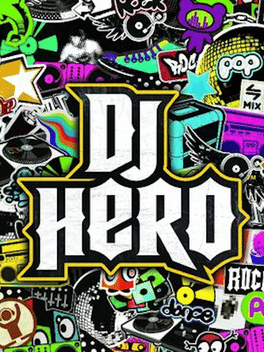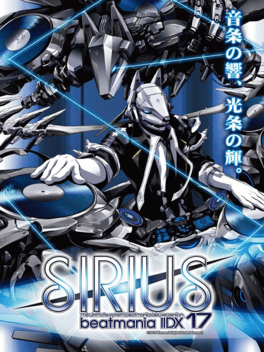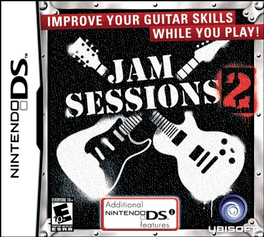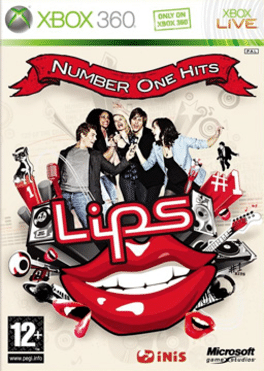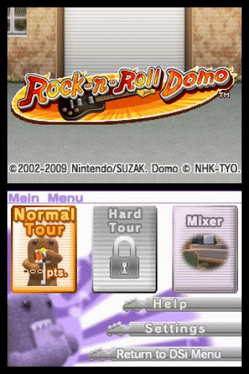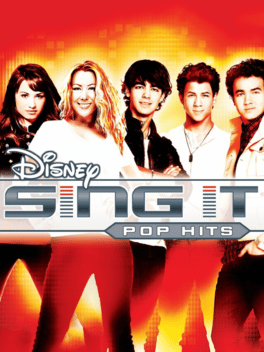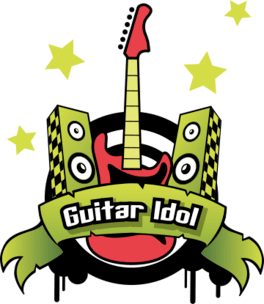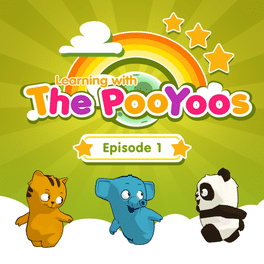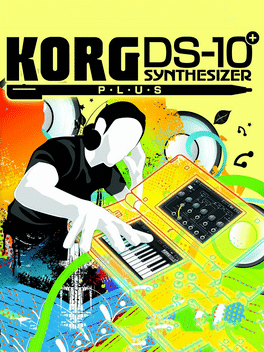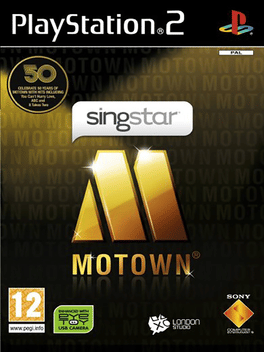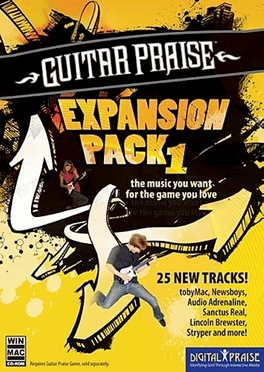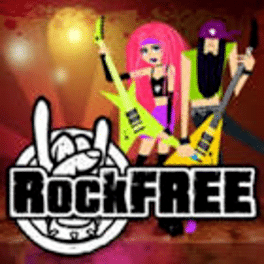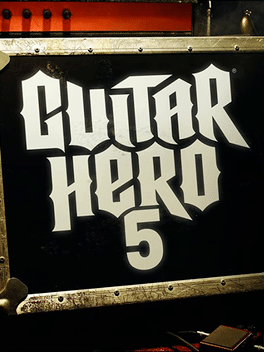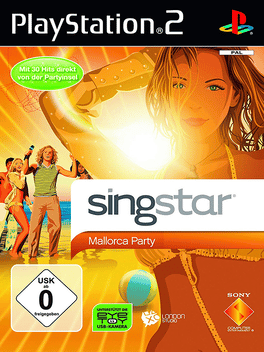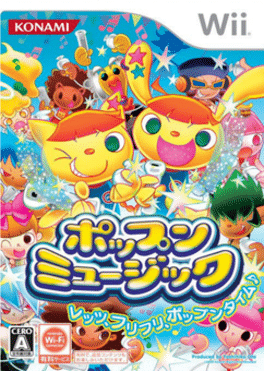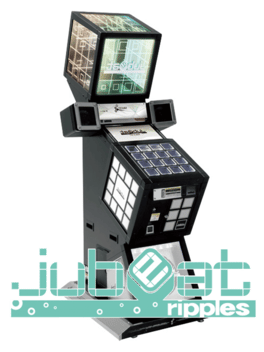New Ps Games - Page 56
-
DJ Hero
2009
DJ Hero
2009
star 8.1DJ Hero primarily simulates turntablism, a musical style used by disc jockeys to create a new mashup song by incorporating one or more previously recorded songs played on record players along with sound effect generators. The game features score attack gameplay similar to the Guitar Hero games. The controller consists of a wireless deck consisting of a movable turntable that supports 3 "stream" buttons, an effects dial, a crossfader, and a "Euphoria" button; a hidden panel contains additional controller buttons to interact with the gaming console outside of the game. A portion of the controller can be detached and reattached to adapt the unit for left-handed players. Notes travel in an arc across a spinning record on screen, and the player holds down one of the 3 stream buttons to play notes; two buttons reflect the two songs used in that particular mix, and the third represents samples to add to the mix which can be adjusted with the effects dial. The player must also constantly adjust the crossfader to match onsc -
Jam Sessions 2
2009
Jam Sessions 2
2009
star 6.3Jam Sessions 2 is the sequel to Jam Sessions, it expands the guitar simulation concept with improved audio, a larger chord library, customizable sound effects, and a wider variety of songs to learn and play. -
Lips: Number One Hits
2009
star 6Lips: Number One Hits is a karaoke video game for the Xbox 360 console, and the follow-up to the 2008 title Lips. Like its predecessor, the game was developed by iNiS and published by Microsoft Game Studios. It was released on October 20, 2009 in North America and October 23 in Europe and received generally average reviews. Spin-offs of the game have also been released, including Lips: Deutsche Partyknaller and Lips: Canta en Español. Lips: Number One Hits features the use of motion-sensitive microphones, which is also compatible with other music video games such as The Beatles: Rock Band.[1] The game is sold separately, and in packages including one and two microphones. Each copy of Lips: Number One Hits includes a redemption code for downloading one of three 5-song track packs for free.[2] -
Rock-n-Roll Domo
2009
-
Disney Sing It: Pop Hits
2009
Disney Sing It: Pop Hits is a video-based karaoke game that delivers the latest in pop music and lets you and your friends belt it out and have the ultimate fun singing experience. Disney Sing It: Pop Hits features hits and music videos from some of your favorite Disney stars and shows, as well as other hit artists including Taylor Swift, Jonas Brothers, Miley Cyrus, Demi Lovato, Jesse McCartney, Coldplay, and One Republic. -
Mega Drive 4
2009
Mega Drive 4
2009
The Mega Drive 4, also branded as the Mega Drive 4 Guitar Idol, is a Mega Drive "console on a chip" which was released by Brazilian company Tectoy in October 2009 as a follow-up to the Mega Drive 3. The first version had 87 built-in games, some of which are not Mega Drive titles specifically, and does not have a cartridge slot for playing other games. It also comes with two control pads which attach to the console via two DE-9 ports, as they would in a traditional Mega Drive, plus a guitar accessory for playing the Guitar Idol game, which is overtly based upon the Guitar Hero games. The game Pense Bem is said to count as 10 games in the general counting. -
Guitar Idol
2009
Guitar Idol
2009
A pack-in game for the Brazilian "Mega Drive 4" model. It's a 16-bit Guitar Hero clone. -
Rock Band: Metal Track Pack
2009
star 8.5Rock Band Metal Track Pack is a standalone game that packages up 20 metal songs from Rock Band's library. It includes songs from Black Tide, Judas Priest, Rage Against The Machine, and more. -
Learning With the PooYoos: Episode 1
2009
With the PooYoos, a merry band of adorable baby animals, children will have fun while learning the basics for his or her development: numbers, letters, space, colors and more. -
KORG DS-10 Plus
2009
KORG DS-10 Plus
2009
star 7.9KORG DS-10 Plus is a music creation program that emulates the Korg MS range of synthesizers. -
SingStar: Motown
2009
SingStar: Motown
2009
star 9SingStar: Motown is a karaoke game which includes, with few exceptions, classic Motown songs from the 1960s and 1970s. There are no changes to the gameplay formula: player(s) sing into a microphone and the game gives points based on the performance. -
The Beatles: Rock Band
2009
star 8.6The Beatles: Rock Band is a 2009 music video game. It is the third major console release in the Rock Band music video game series, in which players can simulate the playing of rock music by using controllers shaped like musical instruments. The Beatles: Rock Band is the first band-centric game in the series, and it is centered on the popular English rock group the Beatles. The game features virtual portrayals of the four band members performing the songs throughout the band's history, including depictions of some of their famous live performances, as well as a number of "dreamscape" sequences for songs from the Abbey Road Studios recording sessions during the group's studio years. -
Guitar Praise: Expansion Pack 1
2009
The first expansion pack for Guitar Praise, featuring 25 new songs from artists such as tobyMac, Audio Adrenaline, Sanctus Real, Lincoln Brewster, Stryper, and more. -
RockFree
2009
RockFree
2009
RockFree was a browser-based 2D rhythm game from Acclaim. Players could create a rocker and play along to match the notes in a Guitar Hero style with a selection of tracks. Cover versions of popular songs from several decades were available, and players were able to have three tracks in their library at any given time. In addition to solo mode, RockFree also allowed players to compete against others for dominance in rock battles of up to eight. The game's upload system let players upload their own tracks to play along with, even letting others try them out. RockFree was free-to-play with microtransactions available. -
Guitar Hero 5
2009
Guitar Hero 5
2009
star 7.6Guitar Hero 5 (initially referred to as Guitar Hero V) is a music rhythm game and the fifth main entry in the Guitar Hero series. The game was developed by Neversoft and published by Activision, and released internationally in September 2009 for the Xbox 360, PlayStation 2, 3 and Wii consoles. Similar to the preceding title, Guitar Hero World Tour, Guitar Hero 5 is geared towards playing in a four-person band experience, including lead and bass guitar, drums, and vocals. The game is available as a standalone title, allowing players to use existing compatible instrument controllers, and as a bundle that provides these controllers. Guitar Hero 5 adds several new features, such as drop-in/drop-out play, bands composed of any combination of available instruments, a Rockfest competitive mode consisting of several various scoring mechanisms, and both song-specific and general Challenges to unlock new avatars, clothing, and other extras in the game. Many of these changes were added to make the game a more social experienc -
SingStar: Mallorca Party
2009
SingStar: Mallorca Party is a karaoke game exclusively released in Germany. I features 30 German songs which are meant to be consumed along with a lot of alcohol. There are no changes to the gameplay formula: player(s) sing into a microphone and the game gives points based on the performance. The only basis of assessment is if the correct note is hit with the correct timeing; the sung words or octave does not play into the result. -
Pop'n Music
2009
-
Jubeat Ripples
2009
Jubeat Ripples
2009
jubeat ripples is the second game of the popular 4x4 grid arcade rhythm game series by Konami. -
Guitar Rock Tour
2009
Guitar Rock Tour
2009
With Guitar Rock Tour you can perform the guitar and drum tracks of the most popular worldwide hits on your NintendoDSi and live the most explosive musical experience on the DSi! Targeted for all audiences, Guitar Rock Tour features solo and multiplayer modes where beginners can have loads of fun right from the start and fans of music games can discover plenty of nuances.
